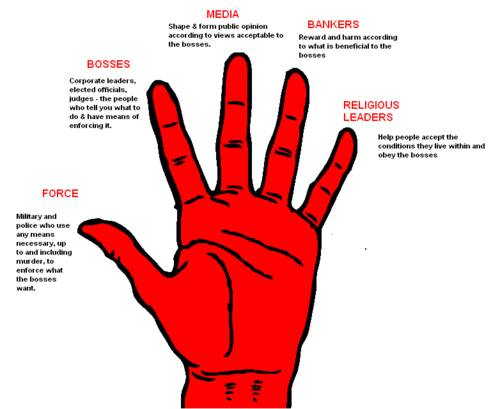

If my bread were moldy or inferior in any way, you will likely buy from my competitors. If I were to treat you poorly when you enter my store, you would likely buy from my competitors. If I were to increase my price too much, you would likely buy bread from my competitors. For example, if I were a baker, the only way I would be able to earn your dollars is to produce bread that is better, cheaper or more convenient than the bread produced by the other bakers in town. Because other self-interested people are competing in the marketplace, my self-interest is held in check. In fact, your self-interest might lead you to study hard for your math test, give money to your favorite charity or volunteer at a local school.Ĭompetition is the regulator of economic activity.ĭoesn't self-interest lead to price gouging, corruption and cheating? Sometimes it does, but most often it is held in check by competition. Self-interest just means that you seek your goals. Is being self-interested greedy? Is it immoral? While the term self-interest has negative connotations, it does not necessarily imply greedy or immoral behavior. The miracle of a market system is that self-interest produces behavior that benefits others. The baker while serving his self-interest has produced a good that is very valuable to you. In fact his bread has to be good enough and the service friendly enough that you are willing to give up your money freely in exchange for his bread. The baker wants to earn enough money to feed his family and buy the things he wants and the most effective way he has found to do that is to bake bread for you. So why does the baker choose to bake? The answer is self-interest. "It is not from the benevolence (kindness) of the butcher, the brewer, or the baker that we expect our dinner, but from their regard to their own interest." Adam Smith described it this way in his book, The Wealth of Nations: In fact, most of the economic activity we see around us is the result of self-interested behavior.

You go to school so you can get a better job someday and earn more money to buy the things you want. You go to work because you want to get paid so you can buy the things you want. To be self-interested simply means that you seek your own personal gain.
Why do you go to work? Why do you go to school? There may be many reasons, but at their core you probably go to work and school because you are self-interested. Self Interest is the motivator of economic activity. The role of self interest and competition was described by economist Adam Smith over 200 years ago and still serves as foundational to our understanding of how market economies function. In this type of economy, two forces - self-interest and competition - play a very important role.

It is a system in which the government plays a small role.
#Invisible hand definition economics series
Subscribe to the Economic Lowdown Podcast Series on:Ī market economy is an economic system in which individuals own most of the resources - land, labor, and capital - and control their use through voluntary decisions made in the marketplace. Learn more about the Q&A Resources for Teachers and Students » More episodes: the end part of a person's arm beyond the wrist, including the palm, fingers, and thumb: she placed the money on the palm of her… Society, A group of perennial problems in social philosophy arises from the concept "society" itself and from its relation to the "individual.To provide students with online questions following the episode, register your class through the Econ Lowdown Teacher Portal. Adam Smith, The Scotch economist and moral philosopher Adam Smith (1723-1790) believed that in a laissez-faire economy the impulse of self-interest would work to… Classical Economics, “Classical economics” refers to the ideas of the first wave of modern economists, whose work spanned the late eighteenth century and much of the nine… Hampton Court (Richmond upon Thames England), hand / hand/


 0 kommentar(er)
0 kommentar(er)
